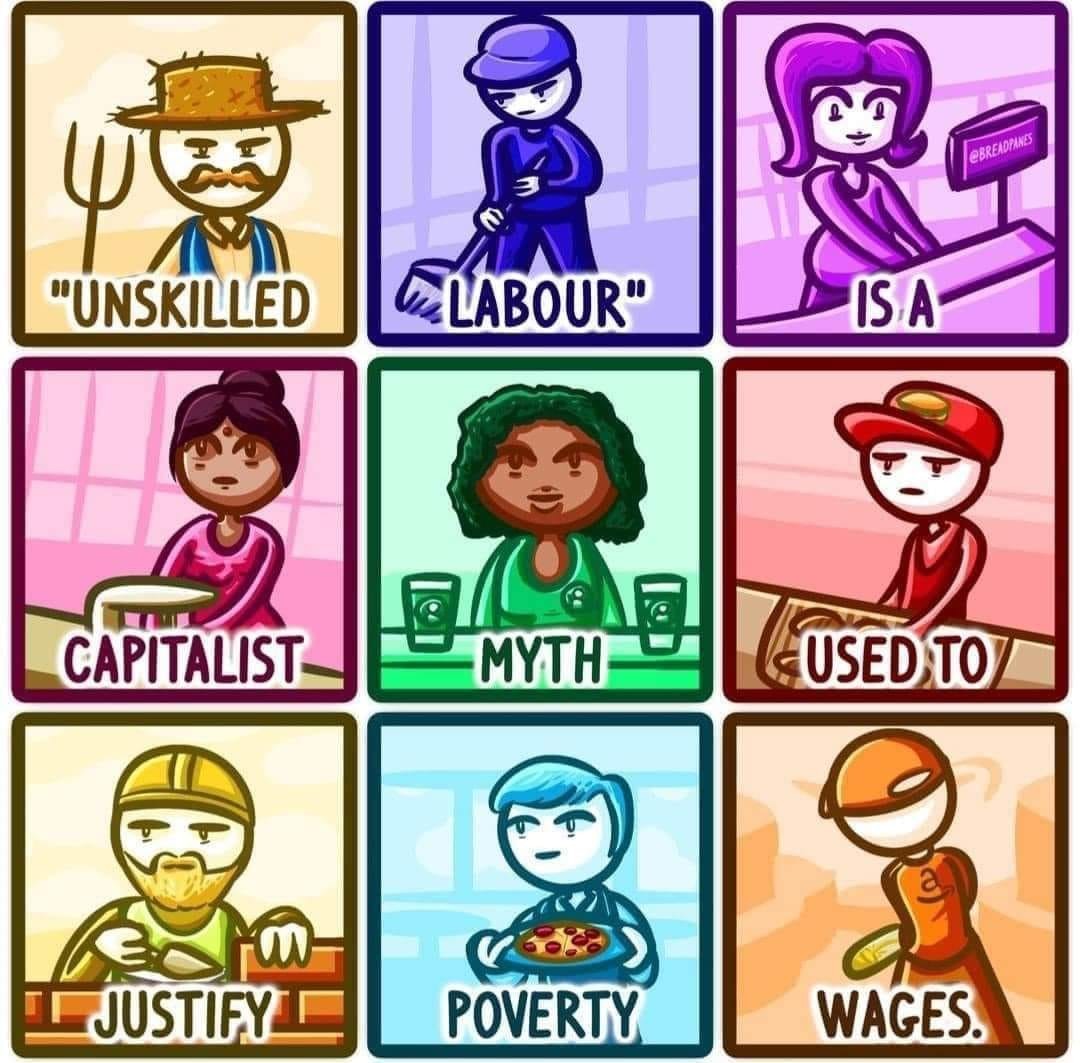this post was submitted on 21 Jan 2024
636 points (88.1% liked)
unions
1565 readers
2 users here now
founded 2 years ago
MODERATORS
you are viewing a single comment's thread
view the rest of the comments
view the rest of the comments

I disagree with the use of the word "skills". I think any job not involving any skills at all (carrying things from A to B for example) disappeared decades or centuries ago. Every job now requires at least some skills. I certainly could never do a lot of "unskilled" jobs. I don't have the physical attributes for some of them, and I don't have the personal skills for others. The real issue is that while some of these jobs do require skills, they're skills that are common enough that the people with those jobs are easily replaceable. Someone who stands up for themselves can be fired and replaced easily and the replacement will only need on-the-job training.
Also, people who work in jobs that require only on-the-job training can become extremely skilled at them. But, unfortunately, that often doesn't lead to them making any more money. They're much less replaceable when they gain skills at those "unskilled" jobs, but it doesn't often lead to them knowing that they have any real power. And, often they don't. An employer will often be willing to fire a very skilled low-wage employee if the employee speaks up for themselves, rather than risk the other low-wage employees getting any uppity ideas.
As for "poverty wages", that's not really related to capitalism or to labeling something "unskilled". It's just power dynamics.
Peasants had "poverty wages" long before capitalism was a thing. They owed a lot of labour to whoever owned the land they worked on, and in many cases even if they were growing food, they were literally starving because they owed the food harvest to the land owner. If they didn't deliver, they could be severely punished or even killed. But, if you were a skilled craftsman, you could escape from that trap. You may still not have had any real legal rights, but you were likely to get a pretty high wage. There's a reason that one of the big secret societies is the Freemasons. Stone masons had power because they were not easily replaced.
Wages are about power, who had the power to demand more than just subsistence living. If you do a job that requires only on-the-job training, you're probably pretty replaceable, so your bargaining power is limited. If your job is hard to replace, you're better compensated.
The only power that "unskilled" workers have is that there tend to be a lot of them. If they joined unions, that union would have a lot of members so it would have some power. If they voted for political candidates that truly represented them, those candidates would have a lot of backers. Unfortunately, in recent decades, the uneducated low-skilled workers have been convinced to vote against their own interests. They vote for parties that scapegoat others, and then gut policies that would benefit low-wage, "low-skill" workers.